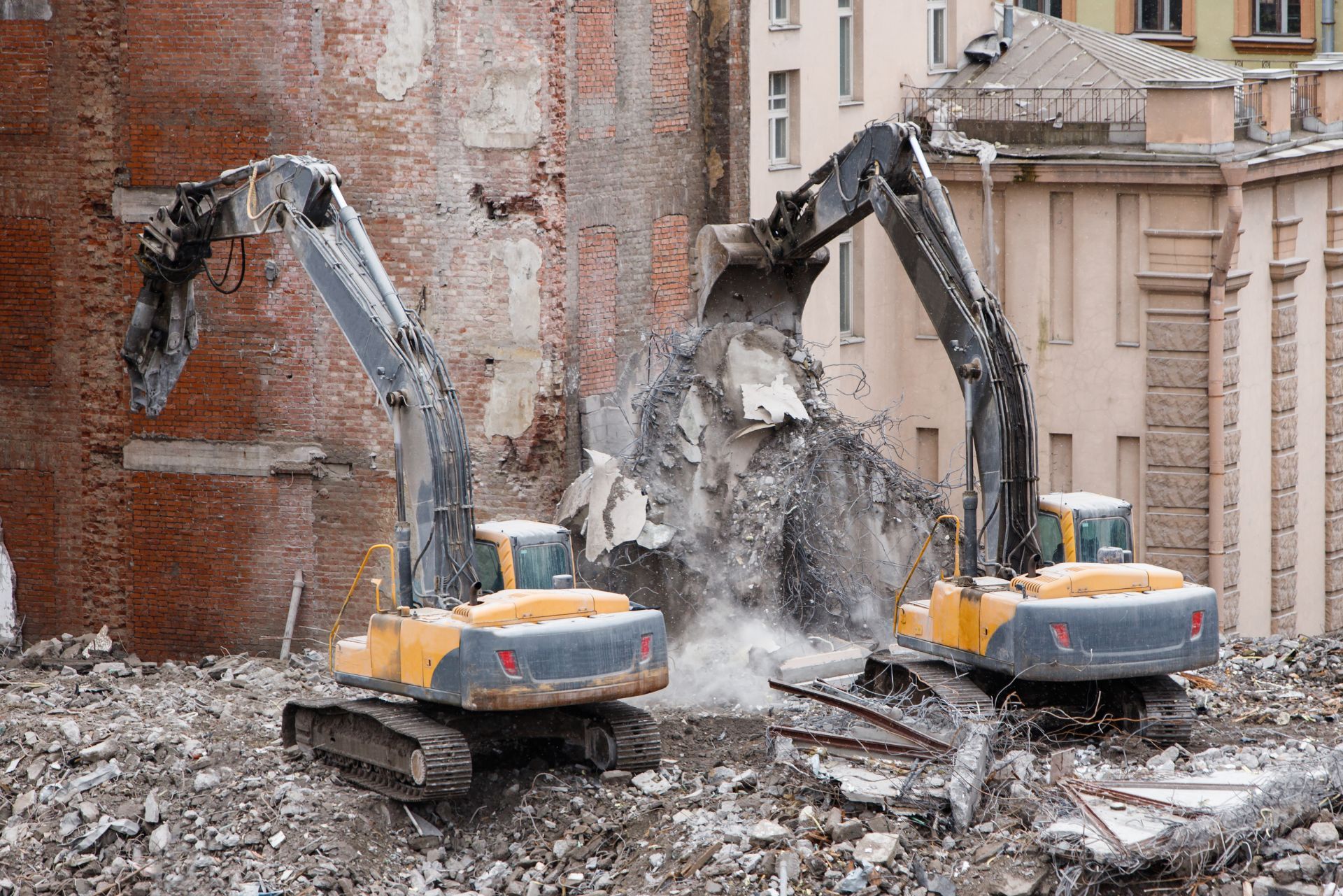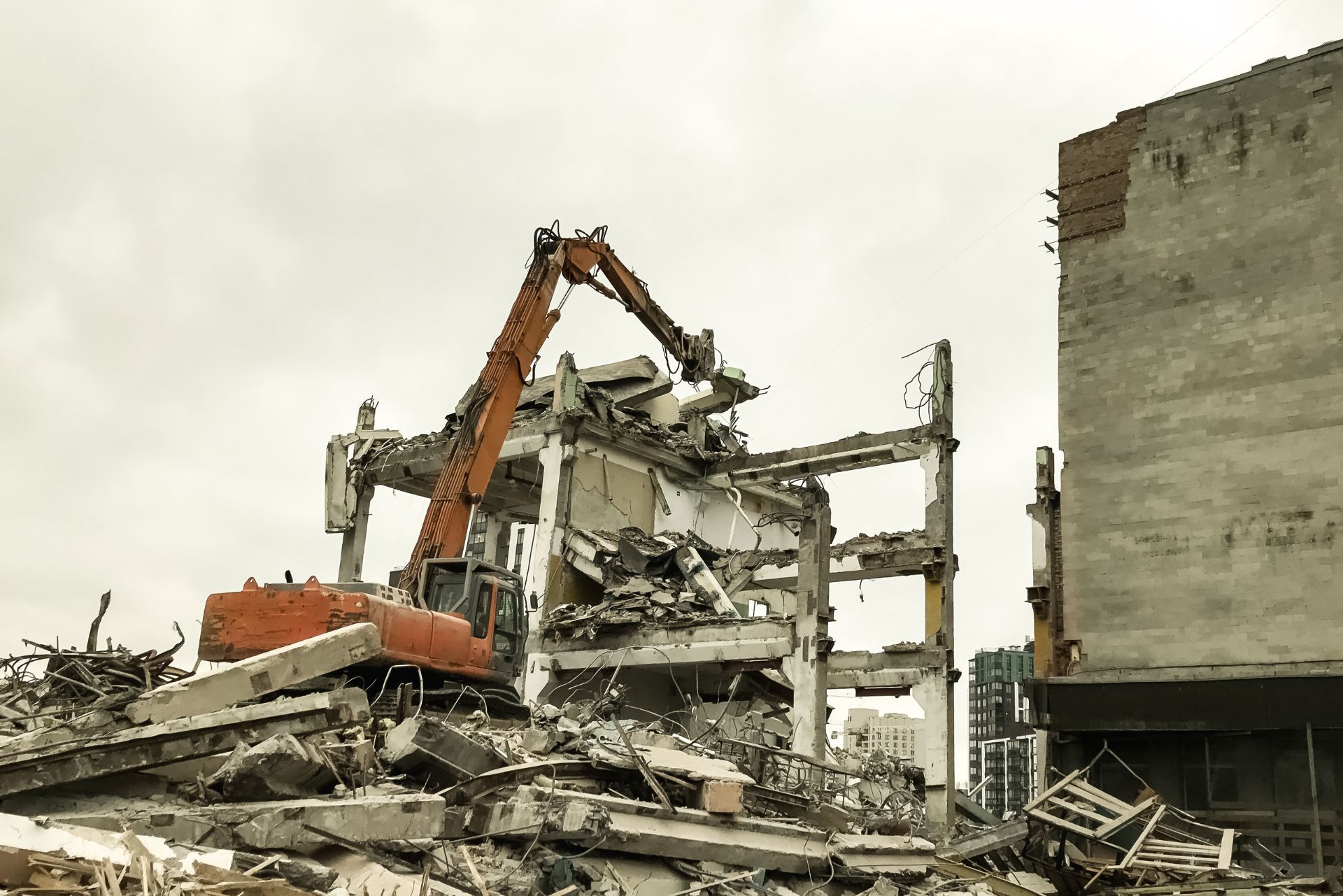New Mexico Demolition Contractors Insurance
8:30am - 5:00pm Mon-Fri
Will Reply in 15min*
Top 3 Recommended Policies
Index
The Growing Landscape of Demolition in New Mexico
Key Risks Facing Demolition Contractors in New Mexico
Workplace Safety and Injury Statistics in New Mexico
Insurance Solutions Tailored for Demolition Contractors
Preparing for the Future: Market Trends and Strategic Planning
Demolition contractors in New Mexico operate in a dynamic and often challenging environment. With increasing climate-related disasters and a growing industry market, having the right insurance coverage is more critical than ever. This comprehensive guide explores the key aspects of demolition contractors insurance in New Mexico, highlighting industry trends, risks, and tailored insurance solutions designed to protect businesses and workers alike.
The Growing Landscape of Demolition in New Mexico
The demolition and wrecking industry in New Mexico is on an upward trajectory. According to IBISWorld, the market is expected to grow to $68.1 million by 2024. This growth reflects increased construction activity, urban redevelopment, and the need for clearing damaged or obsolete structures.
Nationally, the demolition contractors and wrecking market represents a significant $7 billion industry, with tailored insurance programs becoming a crucial component for businesses navigating this complex sector. Companies like Amwins Program Underwriters offer specialized insurance products designed to meet the unique risks faced by demolition contractors.
As the industry expands, so does the need for comprehensive insurance coverage that addresses the specific challenges of demolition work, including property damage, worker safety, and environmental hazards.
In New Mexico, the landscape of demolition is not only shaped by economic factors but also by cultural and environmental considerations. The state is home to a rich tapestry of historic buildings, many of which require careful assessment before any demolition can take place. Preservationists often advocate for adaptive reuse of these structures, promoting a balance between modern development and historical integrity. This trend has led to an increase in projects that focus on deconstruction rather than outright demolition, allowing for materials to be salvaged and reused, thereby minimizing waste and supporting sustainability efforts.
Furthermore, the regulatory environment surrounding demolition in New Mexico is evolving. Local governments are increasingly implementing stricter regulations regarding the disposal of hazardous materials, such as asbestos and lead, which are often found in older buildings. This has prompted demolition companies to invest in specialized training and equipment to ensure compliance with safety standards. The emphasis on environmental responsibility is not only a regulatory requirement but also a growing expectation from the community, driving contractors to adopt greener practices and technologies that reduce their carbon footprint during demolition projects.

Key Risks Facing Demolition Contractors in New Mexico
Demolition contractors encounter a variety of risks that can impact both their operations and financial stability. One of the most pressing concerns is the rise in weather and climate-related disasters. In 2024 alone, the United States experienced 27 confirmed weather and climate disaster events, each causing over $1 billion in damages. These events have reshaped the risk landscape for demolition contractors, especially in states like New Mexico where extreme weather can accelerate the need for demolition services. The increasing frequency of severe storms, wildfires, and flooding not only leads to more demolition projects but also complicates the logistics and safety protocols that contractors must follow.
Mark Coy, program manager for demolition contractors at Amwins Program Underwriters, highlights the increased workload and complexity these events bring: "For demolition contractors, these weather events have certainly increased the amount of work... But more importantly, the nature and scale of this work demand a careful and cautionary approach." This underscores the importance of risk management and insurance coverage tailored to these evolving conditions. Furthermore, contractors must also invest in training and safety measures to ensure their teams are prepared for the unpredictable nature of these disasters, which can involve hazardous materials and unstable structures.
Another significant risk is the rapid development of mold in water-damaged buildings. Many demolition contractors may lack pollution coverage or specific mold endorsements, which can lead to costly workers’ compensation claims and equipment damage. Such issues can even halt operations, emphasizing the need for insurance policies that cover environmental hazards. The presence of mold not only poses health risks to workers but can also lead to legal liabilities if proper procedures are not followed. As awareness of mold-related issues grows, contractors must be proactive in implementing mold remediation strategies and ensuring compliance with health regulations to protect both their employees and their business.
Moreover, regulatory changes in New Mexico can also pose a challenge for demolition contractors. With evolving environmental laws and safety regulations, staying compliant can be a daunting task. Contractors must keep abreast of local ordinances regarding waste disposal, hazardous materials handling, and site safety. Non-compliance can result in hefty fines and project delays, further straining resources. As such, many contractors are now investing in compliance training and legal consultations to navigate these complexities effectively. This proactive approach not only mitigates risks but also enhances their reputation in the industry, making them more competitive in a challenging market.
Workplace Safety and Injury Statistics in New Mexico
Workplace safety remains a critical concern for demolition contractors. In 2022, private industry employers in New Mexico reported 12,400 nonfatal workplace injuries and illnesses, resulting in a total recordable cases incidence rate of 2.3 cases per 100 full-time equivalent workers. This statistic reflects the inherent dangers of construction and demolition work, where heavy machinery, hazardous materials, and unstable structures are common. The nature of demolition work often involves working at heights, handling potentially toxic substances, and operating complex machinery, all of which contribute to a higher risk of accidents and injuries. As such, it is vital for contractors to prioritize safety training and implement stringent protocols to safeguard their workforce.
Interestingly, the education and health services supersector in New Mexico saw a significant decrease in its total recordable cases rate from 4.3% in 2021 to 2.8% in 2022, demonstrating that targeted safety initiatives can effectively reduce workplace injuries. This trend underscores the importance of fostering a culture of safety within organizations, where employees are encouraged to report hazards and participate in safety training programs. While demolition contractors face different challenges, this trend highlights the potential benefits of rigorous safety programs and proper insurance coverage to mitigate risks. By adopting best practices from sectors that have successfully lowered their injury rates, demolition firms can enhance their safety measures and protect their workers more effectively.
Insurance coverage for worker injuries, including workers’ compensation, is essential to protect both employees and employers from the financial consequences of workplace accidents. Contractors should ensure their policies are comprehensive and up-to-date to address the specific hazards of demolition work. Moreover, the implementation of safety management systems can further bolster these efforts. Such systems not only help in identifying and mitigating risks but also promote continuous improvement through regular audits and employee feedback. By investing in both insurance and proactive safety measures, demolition contractors can create a safer working environment, ultimately leading to improved morale and productivity among their workforce.
Insurance Solutions Tailored for Demolition Contractors
Given the unique risks and growing market, demolition contractors in New Mexico require insurance programs that go beyond standard coverage. Providers like Amwins offer tailored insurance solutions that address the specific needs of this industry, including general liability, workers’ compensation, pollution liability, and equipment coverage.
Pollution liability and mold-specific endorsements are particularly important, as highlighted by industry experts. Without these, contractors risk facing claims related to environmental contamination or mold exposure, which can be both expensive and disruptive. Ensuring these coverages are included can safeguard operations and protect against unexpected liabilities.
Additionally, insurance companies are increasingly factoring in climate-related risks when designing policies. This approach helps contractors prepare for the financial impact of natural disasters and extreme weather events, which are becoming more frequent and severe.
Moreover, the importance of risk management strategies cannot be overstated in the demolition industry. Contractors are encouraged to implement comprehensive safety protocols and training programs for their employees, which not only enhance workplace safety but can also lead to lower insurance premiums. By demonstrating a commitment to safety and risk mitigation, contractors can build a solid reputation in the industry, making it easier to secure favorable insurance terms and attract clients who prioritize responsible practices.
Furthermore, as technology advances, many demolition contractors are leveraging innovative tools such as drones and advanced machinery to improve efficiency and safety on job sites. These technologies not only streamline operations but also provide valuable data that can be used to assess risks more accurately. Insurance providers are beginning to recognize the benefits of these advancements, often leading to customized policies that reflect the reduced risk associated with modern demolition practices. This synergy between technology and insurance is paving the way for a more resilient future for demolition contractors in New Mexico.

Preparing for the Future: Market Trends and Strategic Planning
The demolition industry’s positive growth outlook in New Mexico presents opportunities but also challenges. Staying informed about market trends and emerging risks is essential for contractors aiming to thrive in this environment. The Property, Casualty and Direct Insurance industry in New Mexico provides valuable market size data and forecasts, assisting businesses in strategic planning and risk management.
Contractors should leverage these insights to evaluate their insurance needs regularly and adjust coverage as necessary. Proactive risk management, combined with comprehensive insurance, can help businesses navigate the complexities of the demolition sector while protecting their workforce and assets. Moreover, understanding local regulations and compliance requirements is crucial, as these can significantly impact operational efficiency and cost management. By keeping abreast of legislative changes and environmental guidelines, contractors can not only avoid potential fines but also position themselves as responsible industry leaders.
By partnering with knowledgeable insurance providers and staying abreast of industry developments, demolition contractors in New Mexico can build resilience against the evolving challenges of their trade. Networking with other professionals in the field can also yield valuable insights and foster collaborations that enhance operational capabilities. Joining local trade associations or attending industry conferences can provide platforms for sharing best practices and learning about innovative technologies that improve safety and efficiency on job sites. As the industry continues to evolve, embracing these opportunities for growth and adaptation will be key to sustaining long-term success in the competitive landscape of demolition.
Conclusion
Demolition contractors in New Mexico operate within a growing and increasingly complex industry. With rising climate-related disasters, workplace safety concerns, and evolving market demands, having the right insurance coverage is indispensable. Tailored insurance programs that address environmental risks, worker safety, and property protection are vital for sustaining operations and ensuring long-term success.
Understanding the local market trends, such as the expected growth to $68.1 million by 2024 and the impact of 27 billion-dollar weather disasters in 2024, equips contractors to make informed decisions about their insurance needs. Engaging with specialized providers like Amwins Program Underwriters and staying updated on industry data from sources like IBISWorld and the U.S. Bureau of Labor Statistics can provide a competitive edge.
Ultimately, comprehensive demolition contractors insurance tailored to New Mexico’s unique risks is not just a safeguard—it’s a strategic asset for any business committed to thriving in this demanding industry.
Request a Quote
Speak with a HVAC Contractor Insurance specialist today!
Get started today!
If you are preparing to start a valet service at your business, be sure to consider safety issues, legal requirements, and additional coverage options so that you can find the best possible coverage for your budget and needs.
Prefer to speak with an agent now?






